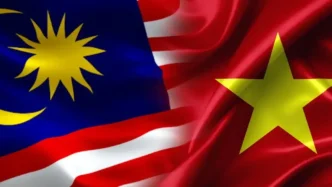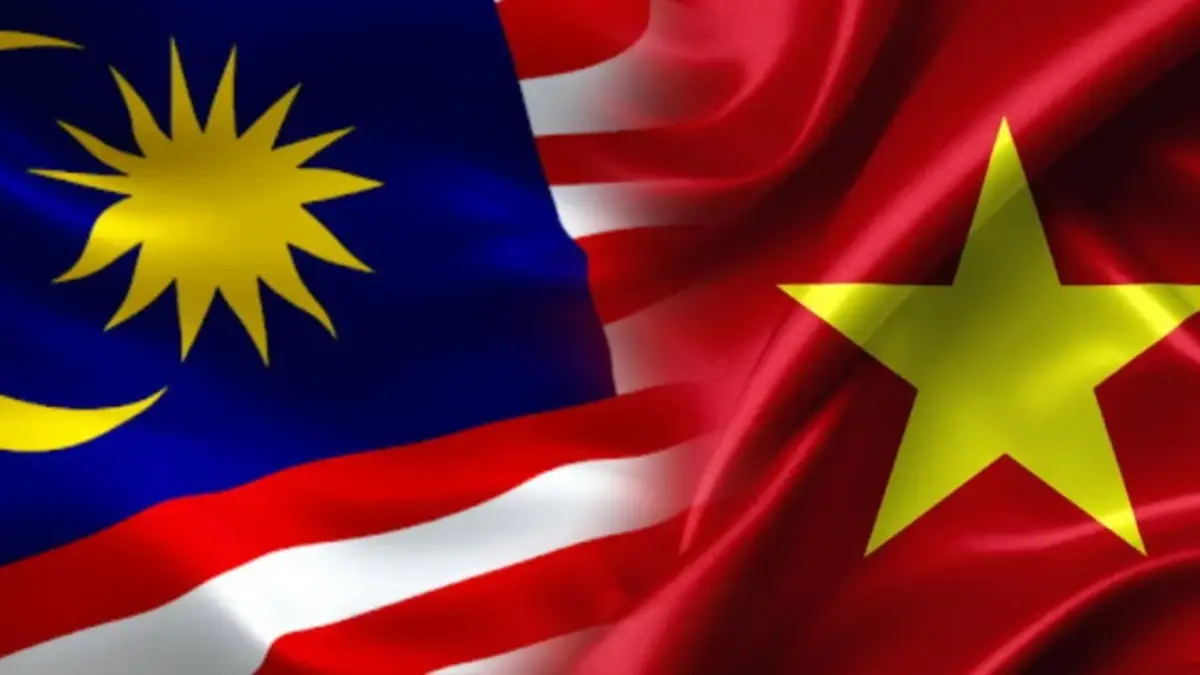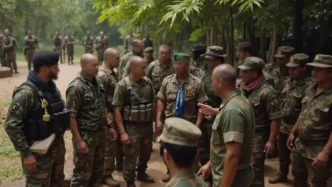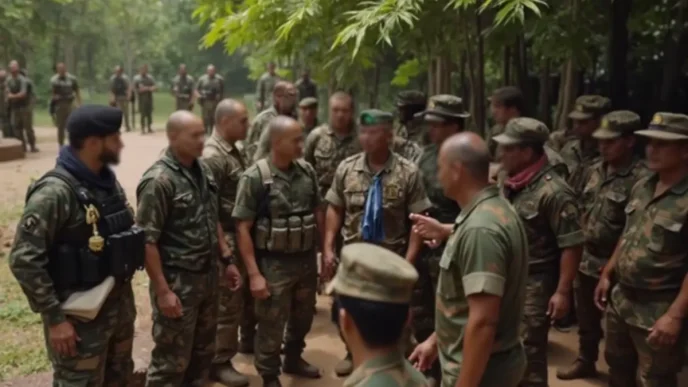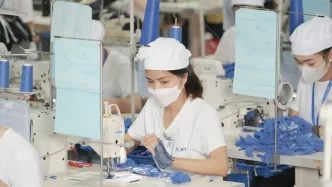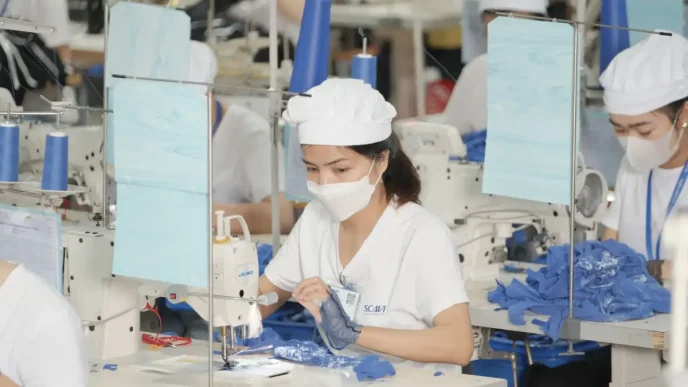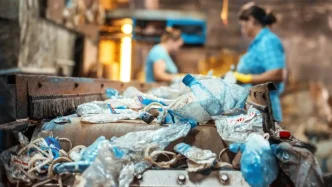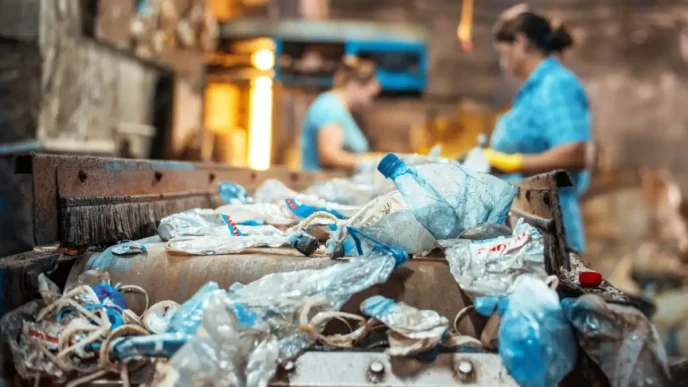In a series of high-profile bilateral meetings on the sidelines of the 58th ASEAN Foreign Ministers’ Meeting in Kuala Lumpur, Malaysia, on July 11, 2025, Vietnam’s Deputy Prime Minister and Minister of Foreign Affairs Bùi Thanh Sơn engaged with key global leaders to bolster diplomatic and economic partnerships. Meeting with US Secretary of State Marco Rubio, Vice-President of the European Commission Kaja Kallas, and UK Secretary of State for Foreign, Commonwealth and Development Affairs David Lamy, Sơn advanced Vietnam’s strategic interests, marking a significant moment as the country celebrates 30 years of diplomatic relations with the United States.
A Milestone in Vietnam-US Relations
The encounter between Sơn and Rubio came at a poignant time, coinciding with the 30th anniversary of Vietnam-US diplomatic ties on July 12, 2025. Both leaders reflected on the remarkable progress achieved over the past three decades, particularly since the relationship was elevated to a Comprehensive Strategic Partnership in 2023. They acknowledged the deepened cooperation across multiple sectors, from trade to security, and expressed a shared commitment to further strengthening these bonds.
Discussions focused on practical steps to enhance bilateral ties, including facilitating high-level visits and maximizing existing cooperation mechanisms. Both sides agreed to organize events commemorating their diplomatic milestone, signaling a mutual desire to celebrate past achievements while laying the groundwork for future collaboration. Economic cooperation emerged as a cornerstone of the talks, with an emphasis on creating balanced and sustainable trade and investment links while addressing lingering challenges for mutual benefit.
Sơn urged the US to support Vietnam in areas such as innovation, digital transformation, high-tech supply chains, and workforce training. He also expressed appreciation for US efforts in addressing the lingering consequences of the Vietnam War, including projects aimed at war aftermath settlement. In response, Rubio emphasized the importance the US places on its relationship with Vietnam, reaffirming a commitment to multifaceted cooperation and continued support for resolving war-related issues as a symbol of trust and evolving partnership.
On regional and global concerns, Sơn encouraged the US to maintain an active role in fostering peace, stability, and sustainable development in Southeast Asia. Rubio reiterated US support for ASEAN’s centrality and the ASEAN-US Comprehensive Strategic Partnership. Both leaders underscored the critical need for peace, security, and freedom of navigation in the East Sea, internationally known as the South China Sea, advocating for dispute resolution in accordance with international law, particularly the 1982 United Nations Convention on the Law of the Sea (UNCLOS).
Deepening Vietnam-EU Collaboration
In his meeting with Kaja Kallas, Vice-President of the European Commission and EU High Representative for Foreign Affairs and Security Policy, Sơn highlighted the positive trajectory of Vietnam-EU relations over the past 35 years since diplomatic ties were established. This long-standing partnership has created a robust foundation for both sides to consider elevating their relationship to a new level amidst complex global dynamics.
The discussions underscored the importance of prioritizing cooperation, especially in trade and investment. Sơn called for the EU to finalize the ratification of the EU-Vietnam Investment Protection Agreement (EVIPA) and to remove the ‘yellow card’ warning imposed on Vietnamese seafood exports due to concerns over illegal, unreported, and unregulated fishing. He also sought increased European investment in Vietnam’s strategic initiatives, including infrastructure, renewable energy, green transition, digital transformation, and environmental projects.
Kallas recognized Vietnam as a vital partner for the EU in the region, agreeing on the necessity of enhancing high-level exchanges and expanding bilateral cooperation. She emphasized the importance of fully leveraging the EU-Vietnam Free Trade Agreement (EVFTA), which has already boosted trade since its implementation, and proposed new areas of collaboration in science, technology, innovation, and green initiatives. Both leaders reaffirmed their commitment to the UN Charter and international law, advocating for the peaceful resolution of conflicts through dialogue and consultation.
Strengthening Ties with the UK
Sơn’s meeting with David Lamy, UK Secretary of State for Foreign, Commonwealth and Development Affairs, focused on reinforcing political trust and creating momentum to elevate Vietnam-UK relations. The two officials committed to increasing the exchange of high-level delegations to solidify their partnership across various domains.
A key topic was Vietnam’s ambitious plan to develop international financial centers in Ho Chi Minh City and Đà Nẵng, a major policy aimed at restructuring the country’s growth model and enhancing economic competitiveness. Sơn requested British expertise and experience in financial center development, as well as assistance in training and attracting a skilled workforce. He also encouraged British organizations and companies to participate in these transformative projects.
Lamy praised the impressive growth in Vietnam-UK relations, particularly in trade and investment, noting the vast potential for further collaboration in emerging sectors such as clean and renewable energy. He pledged to encourage British firms and experts to contribute to Vietnam’s financial center initiatives, viewing such involvement as a pathway to deeper bilateral ties.
Navigating Regional and Global Challenges
Across all three meetings, a recurring theme was the importance of maintaining regional stability and adhering to international norms. With Rubio, the focus on the South China Sea highlighted Vietnam’s strategic concerns about maritime security and the need for peaceful dispute resolution. The emphasis on ASEAN’s centrality in regional affairs, supported by the US, reflects Vietnam’s role as a key player in fostering cooperation within the bloc.
Similarly, discussions with Kallas reinforced a shared commitment to international law and peaceful conflict resolution, aligning with Vietnam’s broader foreign policy objectives. The focus on economic partnerships, particularly through trade agreements like EVFTA, underscores Vietnam’s strategy to integrate more deeply into the global economy while addressing domestic priorities such as sustainable development and digital transformation.
The talks with Lamy highlighted Vietnam’s forward-looking economic vision, with the proposed financial centers signaling an intent to position the country as a regional economic hub. British involvement in these projects could provide Vietnam with the technical expertise and international credibility needed to realize these ambitions, further cementing ties with a key European partner post-Brexit.
Broader Implications for Vietnam’s Foreign Policy
These bilateral engagements in Kuala Lumpur illustrate Vietnam’s multifaceted approach to foreign policy, balancing relationships with major powers like the US, EU, and UK while maintaining its commitment to ASEAN’s collective goals. The timing of the Vietnam-US meeting, coinciding with a significant diplomatic anniversary, serves as a reminder of how far the relationship has come since the normalization of ties in 1995. From historical adversaries to strategic partners, the journey reflects a pragmatic approach to diplomacy that prioritizes mutual benefit over past grievances.
Economically, Vietnam’s outreach to the EU and UK demonstrates a clear intent to diversify its partnerships and reduce reliance on any single market. The push for EVIPA ratification and the removal of trade barriers like the seafood ‘yellow card’ are critical for sustaining export growth, a vital component of Vietnam’s economy. Meanwhile, the focus on high-tech sectors, green energy, and digital transformation aligns with global trends and positions Vietnam as an attractive destination for foreign investment.
Regionally, Vietnam’s emphasis on maritime security and adherence to UNCLOS in discussions about the South China Sea reflects ongoing tensions in the area. As a claimant state in the disputed waters, Vietnam seeks to ensure that international law governs resolution efforts, countering unilateral actions that could destabilize the region. The support from partners like the US for ASEAN’s centrality provides Vietnam with a stronger platform to advocate for its interests within a multilateral framework.
Looking Ahead
As Vietnam continues to navigate a complex geopolitical landscape, the outcomes of these meetings in Kuala Lumpur could set the tone for its international engagements in the coming years. The commitments to high-level visits, economic cooperation, and regional stability signal a proactive stance in shaping a favorable environment for Vietnam’s development. Whether these discussions translate into tangible progress—such as the ratification of trade agreements or increased investment in strategic projects—remains to be seen, but the intent to deepen global partnerships is unmistakable.
For now, Vietnam stands at a pivotal moment, leveraging historical milestones and modern ambitions to carve out a stronger position on the world stage. As these relationships evolve, the balance between economic growth, regional influence, and international cooperation will likely define Vietnam’s path forward.

